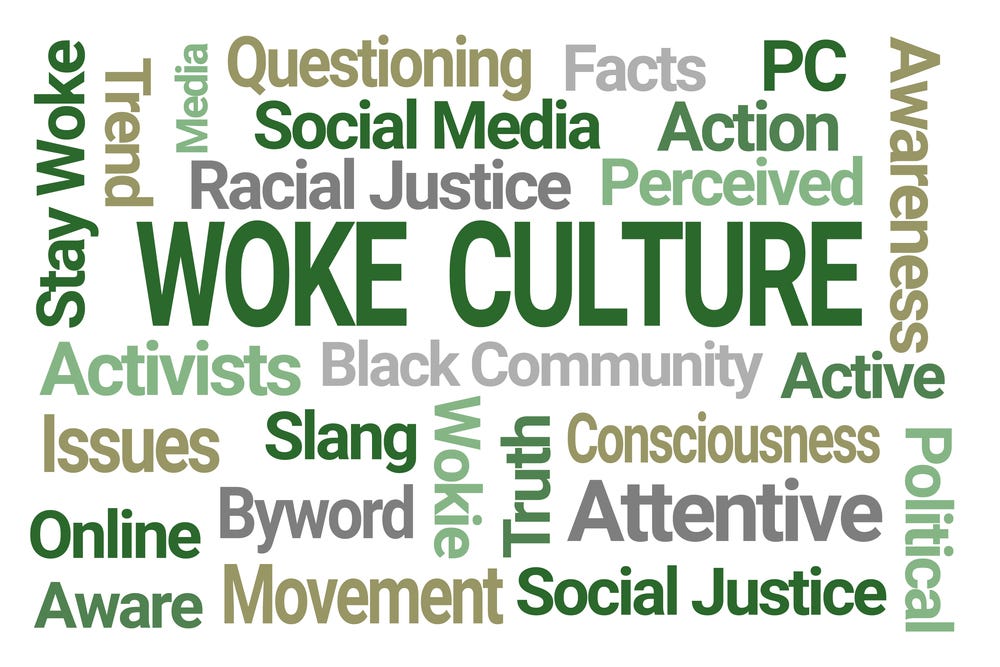E-Pluribus | December 9, 2021
What happened to progressive single-issue advocacy groups, more thoughts on objective truth, and how much of messaging is issues versus words.
A round up of the latest and best writing and musings on the rise of illiberalism in the public discourse:
Zaid Jilani: Progressives Need to Focus
I recently wrote here at Pluribus about mission drift in organizations such as the ACLU. At Persuasion, Zaid Jilani says this loss of focus at (primarily) progressive, single-issue advocacy groups makes sense in terms of the larger goals of progressives, but is actually harmful to the issues for which these organizations were originally founded.
Over the past few years, mainstream progressive activist organizations have increasingly adopted worldviews that insist on assuming a link between seemingly distant social and political issues. In this mindset, you can’t stand for just one issue, you have to embrace them all.
The days where progressive organizations saw themselves as single-issue or narrowly focused on a handful of topics are quickly ending. Another recent example is the AFL-CIO—an organization that serves as one of the voices of American labor unions— deciding to celebrate International Pronouns Day.
Most Americans are probably wondering what in the world International Pronoun Day has to do with wages, benefits, or conditions, the typical issues that motivate labor action. But under the new intersectional approach, celebrating gender diversity is a labor issue because almost everything is a labor issue.
To argue otherwise, the narrative goes, would make one an insincere or impure progressive, a concern that I suspect is motivating the progressive shift away from single-issue advocacy. The people involved in these organizations are activists whose social circle tends to be similarly composed. By constantly adopting the new language and causes of their cohorts, they are engaging in the progressive version of keeping up with the Joneses.
If you’re wondering why so many professional progressive organizations seemed to rapidly adopt terms like “Latinx” or “birthing persons” that few Americans use, this probably explains it.
But the problem with a political organization adopting the intersectional, whole-hog progressive approach is that it could undermine the organization’s primary goals. The controversy with Sunrise DC is an example. The organization is dedicated to saving the planet, but found itself in a days-long dispute over the Middle East that likely divided its membership—the national organization distanced itself from the local group—and did nothing to battle climate change.
Read it all.
Alan Sokal: On Objective Truth and Culture Wars
In October, Néstor de Buen wrote an article entitled “Absolute Truth Corrupts Absolutely” at Arc Digital responding (in part) to an article by Alan Rome (featured on July 2nd at Pluribus, item #2) entitled “In Defence of Absolute Truth.” Alan Sokal has his own thoughts on objective truth, but, to be useful for navigating the culture wars, believes that a sharper focus is needed.
All these philosophical issues are interesting—at least to philosophers, and to philosophically-inclined scientists like myself—but I fear they may not illuminate much about the multifaceted “culture wars”—ostensibly the topic of de Buen’s article. More relevant, I think, are debates about:
Objectivity, relativism, and social construction. Does it make sense to speak of objective truths, or is truth always relative to an individual or a social group? In what sense, if any, is knowledge a social construction?
Language, power, and knowledge. Is it true, as Sapir and Whorf contended, that our language radically conditions our ways of thinking? And is it true, as Foucault and his followers have contended, that society is structured by systems of power and hierarchy that unconsciously organize everyone’s ways of thinking so as to reproduce this same system of domination? These ideas about language and power underlie much “woke” thinking about social issues, and it is important that they be rigorously examined.
Epistemic principles and notions of evidence. Can people with radically different worldviews—for instance, atheists and fundamentalist Christians—engage in rational dialogue? Both sides want to invoke evidence; but what if they have different ideas about what counts as evidence?
The value of free and open debate. A century and a half ago, John Stuart Mill famously argued that “the peculiar evil of silencing the expression of an opinion is, that it is robbing the human race; posterity as well as the existing generation; those who dissent from the opinion, still more than those who hold it. If the opinion is right, they are deprived of the opportunity of exchanging error for truth; if wrong, they lose, what is almost as great a benefit, the clearer perception and livelier impression of truth, produced by its collision with error.” Was Mill right? And are there any circumstances in which debate ought to be curtailed? This issue is a key dividing line between philosophical liberals of all political persuasions and contemporary illiberals on both “left” and “right.”
Read the whole thing.
Jamelle Bouie: The Words Democrats Use Are Not the Real Problem
While much has been written and Tweeted about the evolution and/or corruption of language and how it impacts messaging to various constituencies and demographic groups, Jamelle Bouie of the New York Times believes the effects are overblown. Bouie says this overemphasis on language can obscure the underlying root causes of shifts in voting patterns and will cause Democrats to focus on the wrong things.
After Donald Trump and the Republican Party made gains among Black and Hispanic voters in the 2020 presidential election, a chorus of voices emerged to blame the outcome on Democratic messaging.
Democrats, went the argument, were too “woke,” too preoccupied with “identity politics,” too invested in slogans like “defund the police” and too eager to embrace the language of the activist left. Terms like “BIPOC” (an acronym for Black, Indigenous and People of Color) and especially “Latinx” alienated the working-class Black and Hispanic voters who shifted to Trump in key states like Florida and North Carolina.
It makes sense that this is where the conversation turned. People who work with words — journalists, commentators and political professionals — are naturally interested in the impact of messaging and language on voters.
At the same time, it is important to remember that language does not actually structure politics. Yes, a political message can persuade voters or, on the other end, help them rationalize their choices. And yes, a political message can be effective or ineffective. But we should not mistake this for a causal relationship.
[…]
Does a term like “Latinx” alienate some portion of the Hispanic voting public? A recent survey says yes. According to a new national poll of Hispanic voters, only 2 percent chose the term to describe their ethnic background, and 40 percent said it offends them either “a lot” (20 percent), “somewhat” (11 percent) or “a little” (9 percent). To the extent that Democratic politicians and affiliated voices used the term — demonstrating their distance from the communities in question — that may have left a bad taste in the mouths of some Hispanic voters. But it does not follow from there that use of the term explains anything about electoral trends among Hispanics. For those, we have to look at the material and ideological shifts I mentioned earlier.
Read it all here.
Around Twitter
Via Heterodox Academy, Foundation for Individual Rights in Education CEO Greg Lukianoff appeared recently on a New York Times podcast about free speech on campuses:
An online spat between Jeet Heer of The Nation and Glenn Greenwald led to a podcast conversation that was… productive? Perhaps civil dialogue is still possible after all?
Finally, Wesley Yang on “woke”:












